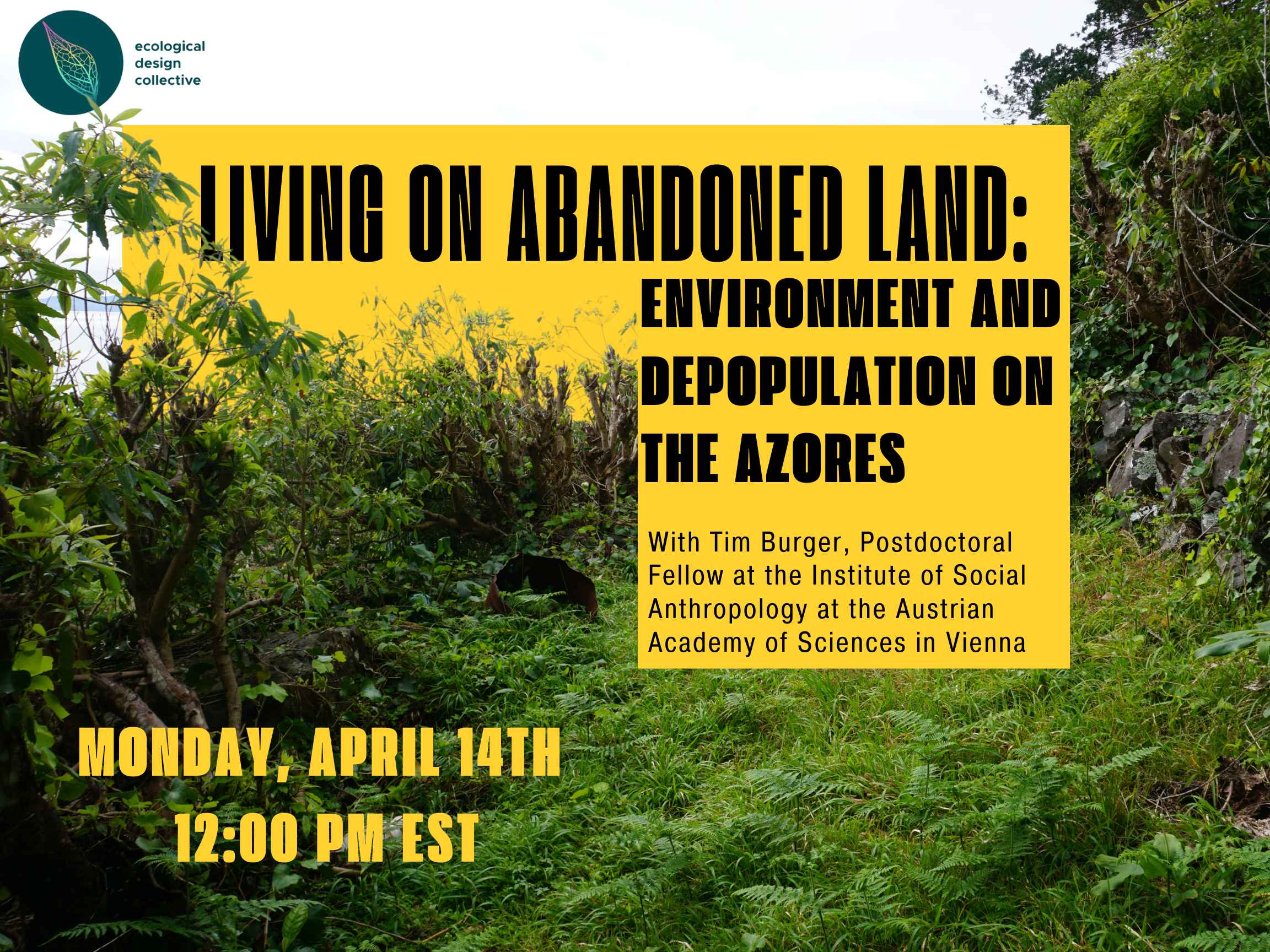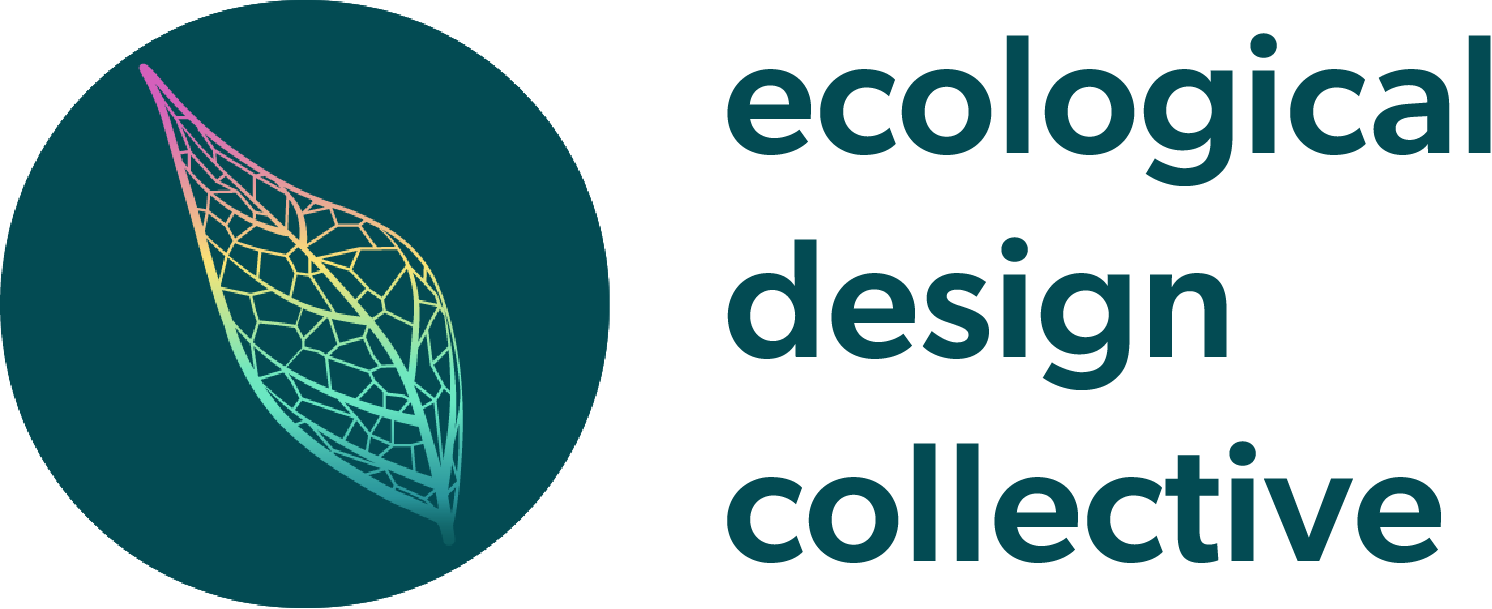
Re-imagining Land – Living on Abandoned Land: Environment and Depopulation on the Azores
April 14 @ 12:00 pm – 1:00 pm EDT

Join the EDC and Tim Burger for a discussion about living on abandoned land!
Residents of the Azores, a Portuguese archipelago in the North Atlantic, grapple with rapid demographic decline which has halved the population of several islands. My talk suggests that people understand their crisis primarily as an environmental one. With thick brushwood enclosing upon their formerly tidy and productive fields, they live out their consciousness of abandonment by engaging with agrarian land that is known to lie in ruins. Land, then, is the central frame mediating abandonment. More specifically, I trace a set of relations, ideas and actions associated with land that is said to be already ‘lost’. Lost land or terra perdida, the local shorthand for everything that is going wrong with farming, denotes fields that have become overgrown and thus at once unproductive and aesthetically unpleasing. Yet lost land is also the site where islanders can take a concrete effect on abandonment’s manifestation. As they encounter depopulation as a disorienting loss of familiarity with their environment and historical positionality, not forsaking land but keeping it under strenuous cultivation becomes an imperative informing conviviality, economy, and historicity.
Tim Burger is an Incoming Postdoctoral Fellow at the Institute of Social Anthropology at the Austrian Academy of Sciences in Vienna. He completed his doctoral thesis at the University of Cambridge in 2024 and has published on human-animal relations, historicity and money in journals such as Social Analysis, American Ethnologist (in press), and Sociologus. He also coedited collections on ethnographic methodology (2024), on feminist approaches to the study of capitalism (2023), and on the role of literature in the ethnographic imagination (2024).
This event continues the EDC’s 2024-25 itinerary for “Reimagining Land,” which explores ecology, history, and contemporary place-making efforts through experiential and virtual events.


Responses